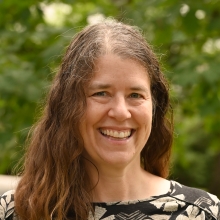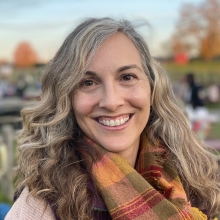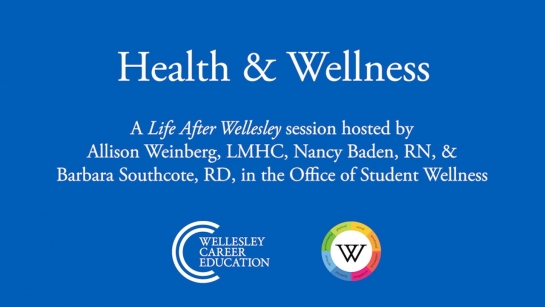Physics and Astronomy Department First Destinations (2019–2023 Graduates)
Physics

The contemporary study of the physical universe encompasses systems ranging from the microscopic — atoms, nuclei, and elementary particles, to the very large — planets, stars, and galaxies, and the Wellesley Physics department introduces students to the study of all that falls along that spectrum. Since physics covers such a broad band, students of physics develop concrete and transferable skills that can be applied in a number of different settings — academia, industry, research, government, nonprofits, and more.
Physical Sciences

The physical sciences, as a branch of natural science, focuses primarily on the study of non-living systems. However, just as these areas of study are broad, the physical sciences intersect with a wide range of career opportunities, which can be found in the private sector, in education and academia, and in all levels of government.
Physical Therapy

Physical therapists (PTs) are healthcare professionals who treat people with injuries, illnesses, or disabilities to improve their movement, reduce pain, restore lost function, prevent future injury, reach fitness goals, and generally promote an active lifestyle. PTs are experts on the movement of the human body. They educate patients, recommend exercises for their specific situation, and provide hands-on care such as deep-tissue massages.
Law School — College Certification

Many law schools require that a dean's or college certification or questionnaire be completed by the applicant's undergraduate institution. This certification typically requests the applicant's class rank, status on physical or emotional health, and information on matters of discipline during the undergraduate years.
What If My Grades Aren't Strong?

First and foremost, you do not need to have all A grades to be accepted into a health professions school. But schools will want to see evidence of ability in the sciences and strong study skills that will allow you to succeed in a graduate academic environment.
Preparing to Apply for Health Professions School: Gaining Competencies

There are many things health professions schools will take into account when they review your application.
Geosciences

Geoscience is the study of earth and all of its systems, and geoscientists investigate these interactions using transdisciplinary approaches to address questions related to how the Earth formed, how it evolved over geologic time, and how its continued evolution affects the environment in which we live. With geoscience being such a broad major of the study of the earth, there are many areas in which one could specialize and use to pursue career opportunities.
Architecture
Architecture, a discipline deeply rooted in the creative expression of designing physical spaces, presents a vast array of interdisciplinary job opportunities. While architecture itself embodies the art and science of constructing buildings, the path to success in this field extends beyond the confines of traditional licensed architectural practice.
Occupational Therapists

Occupational therapists (OTs) are healthcare professionals who treat people with injuries, illnesses, or disabilities to allow them to perform the tasks (also called occupations) that they need or want to do. OTs assess their patients’ needs and desires and work with them to create an individualized treatment plan that will allow them to reach their goals as independently as possible.
ROTC at Wellesley

The Reserves Officer Training Corps (ROTC) is a college program that prepares students to become commissioned officers in the United States Armed Forces. The ROTC curriculum is pursued at the same time as your Wellesley College courses, and is focused on leadership development and career training.
Wellesley offers students the opportunity to join the Army and Air Force ROTC programs. Both programs are hosted by the Massachusetts Institute of Technology...
Resources for Pre-Health Students & Alumnae With Disabilities

If you have a disability and are thinking about a career in the health professions, it’s important that you educate yourself about your rights and resources.
Advising: Using Health Professions Advising and/or the Medical Professions Advising Committee

Wellesley Health Professions Advising (HPA) is interested in helping Wellesley students and alumnae learn more about the path to becoming a health professional. We welcome all students with any interests, and encourage you to meet with an HPA advisor at least once a year.
Data: National Admissions Statistics for Some Health Professions

Review admissions data for some health profession schools, including Dental, Medical (various), Nursing, and Veterinary Schools.
Prospective Wellesley Students Interested in Careers in the Health Professions

Thank you for considering Wellesley College for your undergraduate education. Here you will develop the skills of a liberal arts education, including critical thinking, problem solving, synthesis of information, and effective communication. These skills will serve you well throughout your lifetime, and are highly valued by health professions schools. As you explore your options, here are answers to some of the questions you may be asking:
Health Profession Schools: Which Courses Should I Take?

Health professions schools establish their own individual admission requirements. This resource provides an overview of commonly required courses for health professions schools, advice for planning your schedule, and other academic advising information.
Completing Your Application

Many health professions schools use a centralized application service to collect applicant information and transcripts, verify the information, and to forward these materials to designated schools. Some services also collect and transmit letters of recommendation. Often there is an instruction manual created by the application service each year that is available on-line. Read this and use it as you complete your applications.



